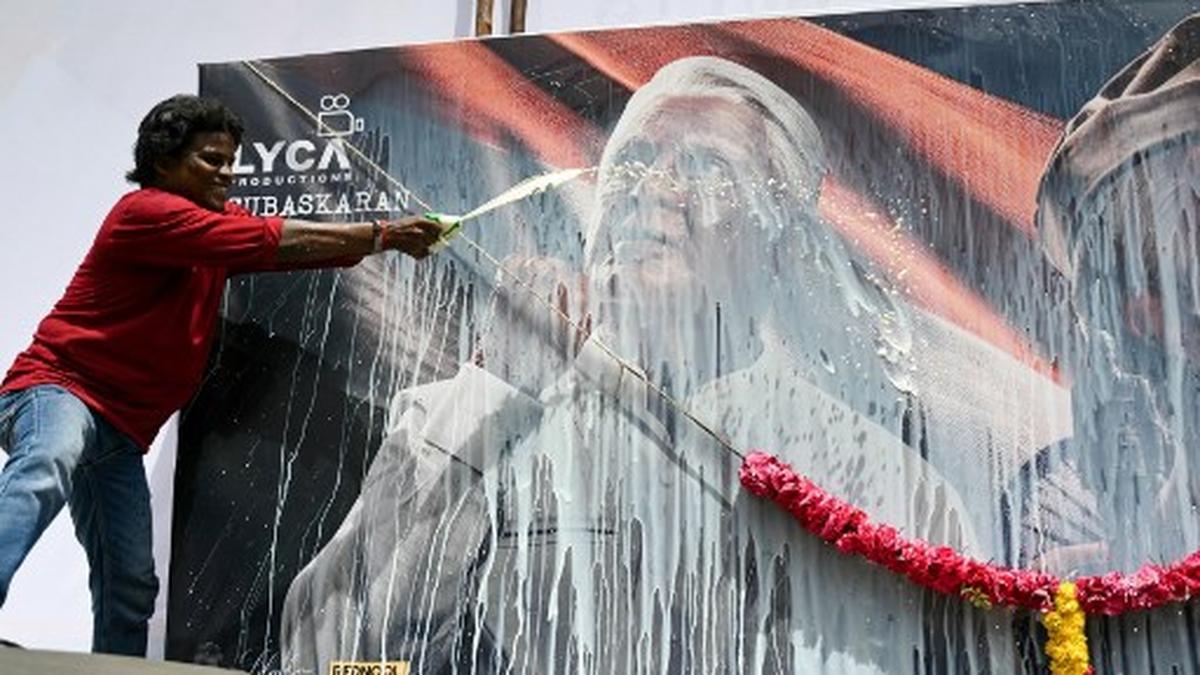
The Tamil Film Producers’ Council (TFPC) has announced significant changes poised to reshape the landscape of the Tamil film industry. In a major statement on Monday, the TFPC mandated an eight-week OTT release window for films featuring big stars. This move, aimed at preserving the theatrical experience, was one of several critical steps the council outlined during a crucial meeting with members of the Tamil Nadu Theater and Multiplex Owners Association and the Tamil Nadu Film Distributors Association.
The Council, emphasizing the need to stabilize the industry, declared that all film-related activities will temporarily cease starting from November 1. Moreover, the initiation of new film productions is slated to halt from August 16. These dates were strategically chosen to afford ample time for the implementation of the upcoming regulations designed to tackle the industry’s pressing issues.
A core aspect of these regulatory changes seeks to address and regularize the remuneration of film artists and technicians. In recent years, the increasing costs associated with paying high-profile actors and technicians have seen film budgets skyrocket, often resulting in substantial losses for producers. The TFPC has hence resolved to restructure these payments to ensure sustainable financial practices. To facilitate this, the council necessitates a pause in all film-related activities beginning November 1.
In explaining the planned hiatus for new productions, the TFPC underscored the desperate situation faced by numerous films that remain stuck without theatrical releases. These delays not only impede the financial turnover for producers but also create bottlenecks in the production pipeline. By postponing the commencement of new film projects from August 16, TFPC aims to smoothen the transition into the new regulatory framework. This break period is anticipated to assist in aligning the production schedules and facilitate the release of currently stalled films.
Additionally, the Council spotlighted an issue where actors and technicians receive advance payments for projects but subsequently take on other work before completing their existing commitments.
. This practice has exacerbated the financial strain on producers. The TFPC unequivocally stated, “Going forward, any actor, actress, and technician who has received an advance from the producers must complete their commitment before moving on to new films.”
A specific mention was made of actor Dhanush, who has reportedly received advances from multiple producers. The council urged producers to consult with them before proceeding with any ventures involving Dhanush, aiming to mitigate the risks associated with advance remunerations not being honored on time. “It was discussed and decided that the details of films currently in production must be formally communicated to the Tamil Film Producers Association by letter,” noted the Council’s statement, advising producers to wrap up any ongoing shoots by October 30.
To solemnize these actions and ensure their effective implementation, the Council has constituted a Joint Action Committee consisting of various industry stakeholders. This committee is charged with the responsibility of resolving ongoing and future issues within the film industry, thus providing a collaborative platform for dialogue and problem-solving.
In highlighting the wider ramifications of these decisions, it is evident that the TFPC is making a concerted effort to safeguard the interests of producers, who often bear the brunt of financial burdens within the volatile film industry. By introducing an eight-week OTT release window, the TFPC ensures that considerable revenue streams from theatrical releases are not prematurely halted by OTT releases, thus guaranteeing better returns for producers and distributors alike.
The halts in both film-related activities and new productions are indeed drastic measures. However, these are reflective of the pressing need for a systematic overhaul within the industry. The council’s comprehensive plan aims to create a more balanced and financially stable environment, helping the industry sustain itself in a rapidly changing entertainment landscape dominated by digital platforms and changing consumption patterns.
As the film fraternity adapts to these changes, the coming months will be crucial in determining the efficacy and impacts of the TFPC’s decisions. The moves signal a firm stance on bringing order and financial viability to one of India’s most vibrant film industries.












